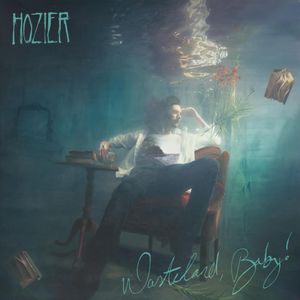
News
Summers Will Not Finish Semester of Teaching as Harvard Investigates Epstein Ties

News
Harvard College Students Report Favoring Divestment from Israel in HUA Survey

News
‘He Should Resign’: Harvard Undergrads Take Hard Line Against Summers Over Epstein Scandal

News
Harvard To Launch New Investigation Into Epstein’s Ties to Summers, Other University Affiliates

News
Harvard Students To Vote on Divestment From Israel in Inaugural HUA Election Survey
Hozier is Out of the Woods and In The Blues on ‘Wasteland, Baby!’
4 Stars

Five years after the release of his eponymous debut album, Hozier is back with his sophomore album, “Wasteland, Baby!” His self-titled album skyrocketed the artist’s career, sold out world tours, and earned him a grammy nomination for the hit single “Take Me To Church.” In “Wasteland, Baby!,” He blends his woodsy vocals with raw, instrumental tracks. He begins with the powerful single “Nina Cried Power,” which uses choral groups to add to the timbre of sound. Taking a new perspective on the intersection of folk, acoustic, and gospel, “Wasteland Baby!”is an evocative follow up to Hozier’s difficult-to-top debut.
“Nina Cried Power” is a fitting introduction to an album that seeks to build and improve on the Irish artist’s tried and true style. Hozier’s vocals emulate the feeling of being isolated from, then returning to society. The tracks on “Wasteland, Baby!” showcase a diverse array of musical elements. “Movement” features bells and an acapella-inspired sound, featuring hand claps and forgoing percussive instruments or a band until the climatic end. “To Make Noise (Sing)” confirms everything that Hozier’s first album led listeners to expect from him. His expansive musical knowledge compels him to juxtapose these themes on a bluesy album with dark tones . The number’s major chords make it stand out in its own right.
Like his debut, “Wasteland, Baby!” is grounded by societally relevant subjects and provocative lyrics. Rumored to be inspired by astrophysicist Katie Mack, “No Plan” explores the end of the universe. Hozier alludes to Mack herself in the lyrics: “Sit in and watch the sunlight fade / Honey, enjoy, it's gettin’ late / There's no plan, there's no hand on the rein / As Mack explained, there will be darkness again.” Circulating back to “Nina Cried Power," Hozier samples the vocals of renowned artists Nina Simone, Joni Mitchell, Billie Holliday, James Brown, and Mavis Staples in order to credit “the legacy of protest.” When writing “Nina Cried Power” Hozier worked with singer and artists who worked and marched with the Civil Rights Movement and Dr. Martin Luther King, Jr. These cameos add depth and urgency to the earthy single.
Hozier ends the album with the titular track “Wasteland, Baby!,” the most moving, raw, and emotional song of the album. Similar in style to his song “Like Real People Do,” “Wasteland, Baby!” is underscored by acoustic guitar and soft vocals that complement the song’s personal touch. With lyrics that compare the cycle of a love affair to an apocalyptic encounter, “Wasteland, Baby!” embodies the feelings of peace and serenity that the album at large evokes. Hozier displays diverse songs tied together by their shared intersections of folk, acoustic, and gospel sounds accompanied by thought-provoking lyrics. While “Wasteland, Baby!” may not be a huge departure from Hozier’s existing repertoire, it doesn’t need to be. It stays true to his style without sacrificing exploration, all the while cementing Hozier’s place in a genre all his own.
Want to keep up with breaking news? Subscribe to our email newsletter.
